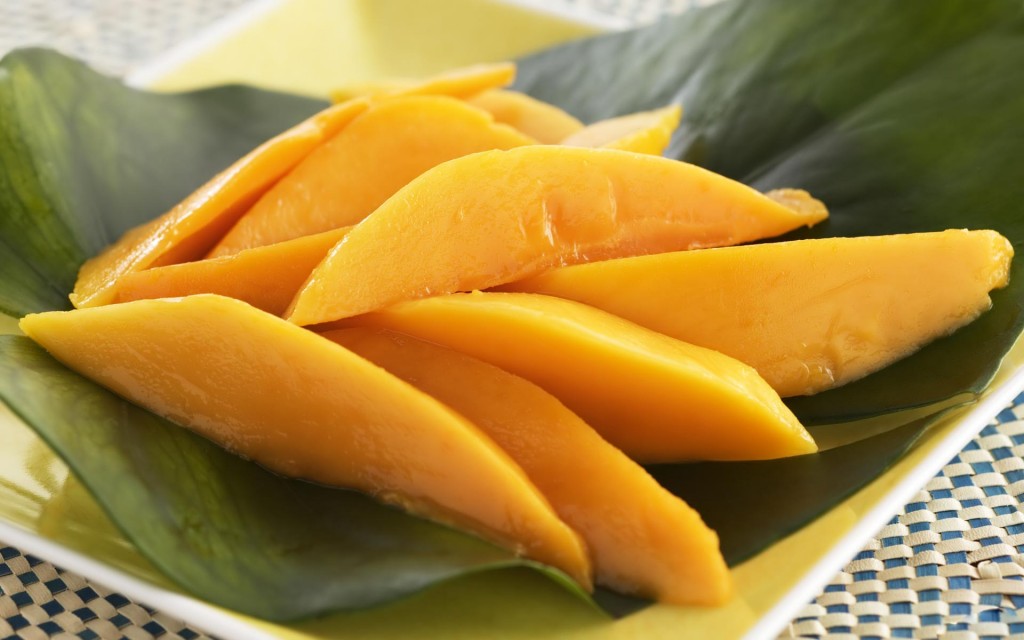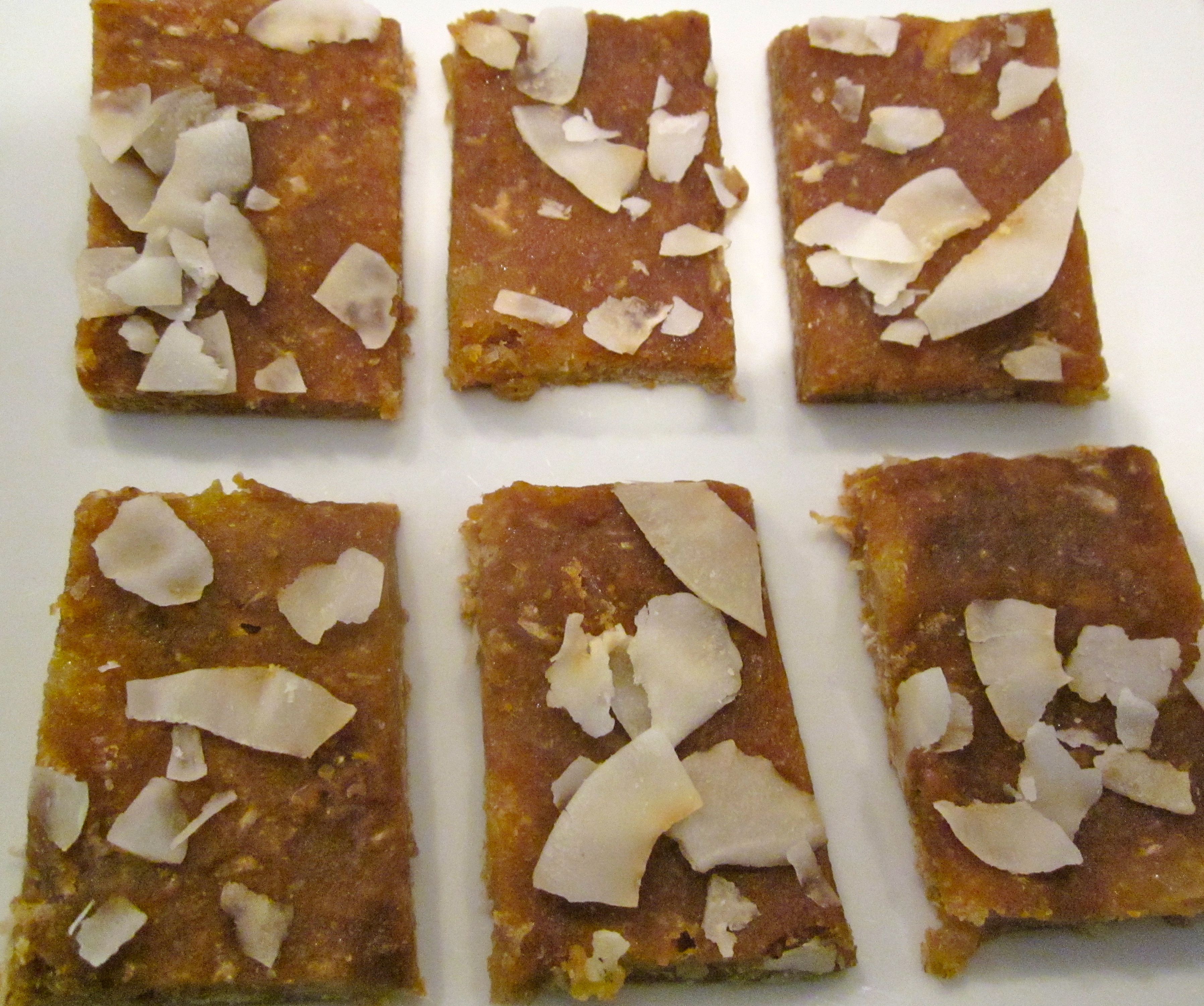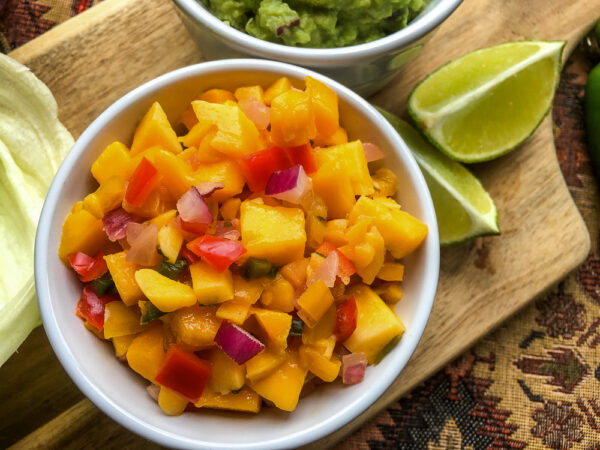Reading Time: 4 minutes
Immerse yourself in the soulful essence of Greek cuisine with the authentic and health-infused Horiatiki Salata, a time-honored classic that showcases nature’s bounty in its most vibrant form. In this nourishing journey, we’ll uncover this traditional dish’s distinctive aspects, delve into its components’ nutrient-rich power, understand its compatibility with mindful food-combining principles, and appreciate its season-perfect appeal for those sizzling summer afternoons.
A Departure from the Usual Salad Norm
Contrary to the popular salad norm of opening with a canvas of leafy greens, Horiatiki Salata chooses a different path. This genuine Greek delight skips the lettuce and cherry tomatoes instead, letting succulent large ripe tomatoes take center stage. Excluding greens allows the other vibrant ingredients to shine, offering a sensory feast of tastes and textures.
Dried oregano lends a nuanced depth to this salad. It’s a cornerstone of Greek culinary tradition, offering an earthy, slightly bitter edge that harmonizes beautifully with the fresh, crisp components. Moreover, oregano is rich in antioxidants and possesses medicinal properties ranging from anti-inflammatory effects to potential cancer-fighting benefits.
Each element of Horiatiki Salata is a nutritional star in its own right. Tomatoes bring a wealth of lycopene, a potent antioxidant that guards against chronic diseases. Cucumbers, our hydrating superstars, are a source of vital vitamins and minerals. Red onions contain quercetin, a flavonoid antioxidant known for its anti-inflammatory, antihistamine, and cardiovascular benefits.
Then we have feta cheese, traditionally made from sheep and goat milk, a source of protein and calcium. Thanks to its distinctive casein composition, this cheese variety is much easier on your digestion than cow’s milk cheeses.
Cow’s milk contains a protein known as A1 beta-casein. During digestion, this protein can break down into an opioid peptide named BCM-7, which has the potential to cause inflammation and digestive discomfort. In contrast, the milk from sheep and goats contains A2 beta-casein, a different type of protein that does not have these inflammatory properties. As a result, dairy products made from sheep and goat milk, such as their cheeses, are often easier to digest and less likely to result in digestive upset.
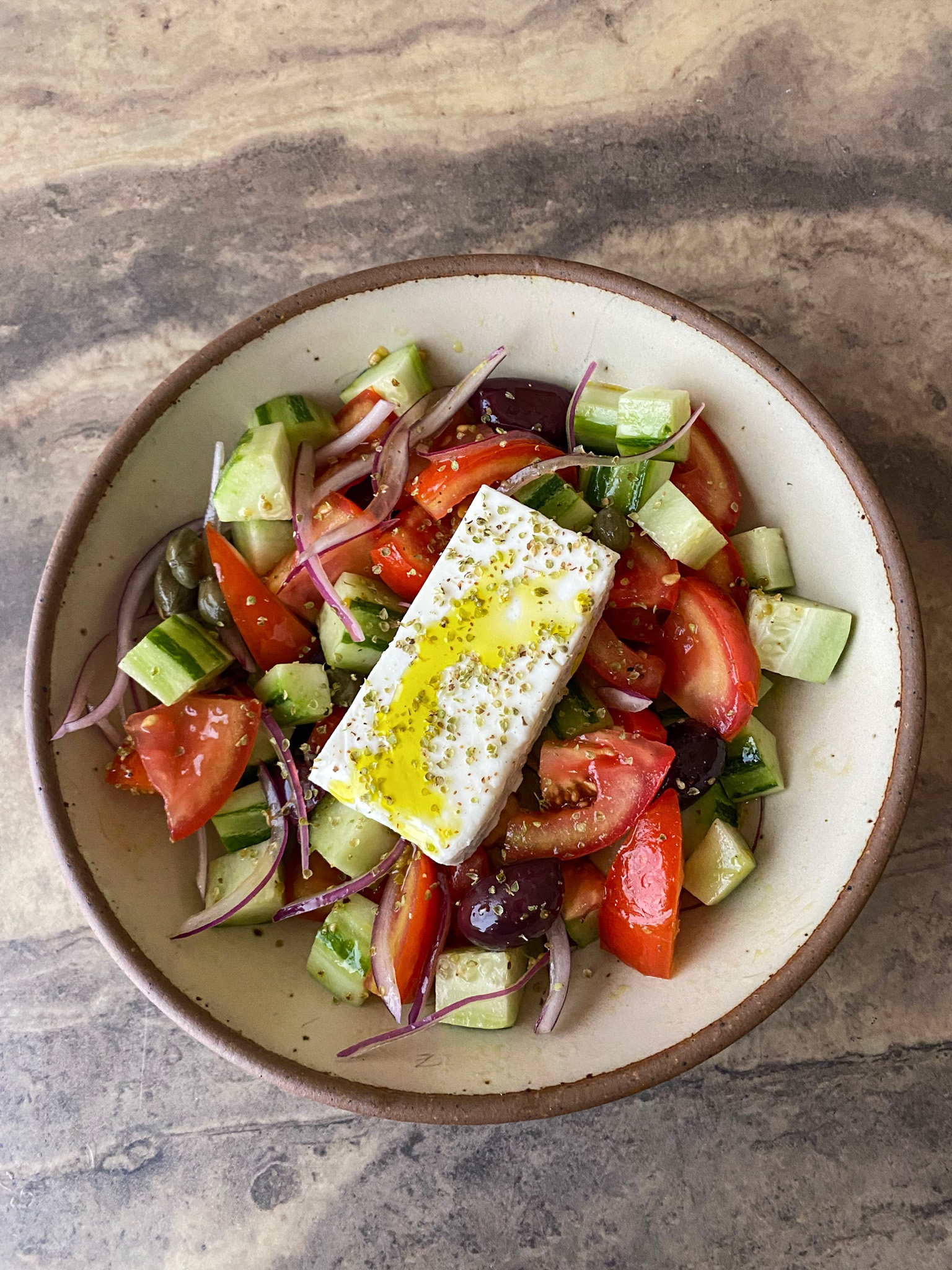
Supporting Digestion through Thoughtful Food Pairings
Adhering to the principles of food combining, Horiatiki Salata is more than a sensory delight; it serves as a digestive ally. You’ll love this salad if you’re on a healing journey or seeking gut-friendly meals. Its uncomplicated, fresh ingredients are light on the system, making it an ideal partner for your body’s cleansing and rejuvenation process.
While detox practitioners often advise reducing dairy intake to prevent potential inflammatory reactions, goat and sheep cheese are a welcome exception to this guideline. Furthermore, combining these cheeses with low-carb veggies, as in this salad, creates an efficient digestive pairing that ensures smooth and swift transit through your system, actively supporting your body’s natural detoxification pathways. This way, you’re giving your palate a treat and supporting your body’s natural cleansing process while keeping it nutrient-rich and deliciously satisfying.
In my rendition of Horiatiki Salata, I’ve decided to skip green peppers. Though they offer a delightful crunch and bright color, they can sometimes pose a challenge to the digestion process. However, if peppers agree with you, feel free to include them in your adaptation of this Greek classic. After all, recipes are just a guide; it’s up to you to personalize them to your palate and nutritional needs.
Savor the Mediterranean Sunshine and Embrace Traditional Wisdom
There’s nothing better than a refreshing bowl of Horiatiki Salata on a hot summer day. The crunch of fresh veggies, the tang of feta, and the briny olives culminate into a rejuvenating and nourishing meal. And with minimal preparation time, you’re free to enjoy more sunshine. Savoring this salad on a warm, sunny day is such a joy.
Horiatiki Salata transcends the ordinary—it’s a testament to the enduring allure of uncomplicated, fresh ingredients that pay homage to traditional wisdom and nourish your health. When the summer sun graces us with its presence, it’s time to let Greece’s culinary pleasures into your life with this oh-so-yummy and good-for-you dish. So, are you ready to let the spirit of the Mediterranean sunshine into your kitchen?
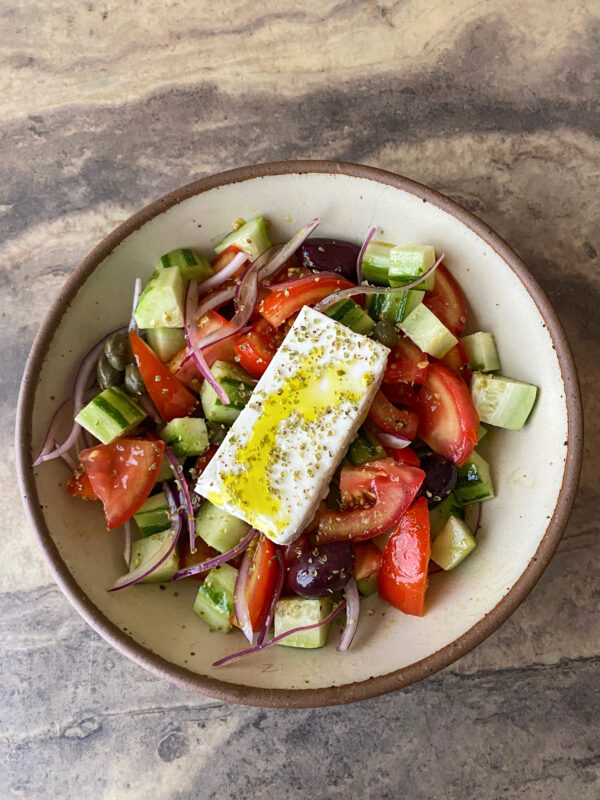
Ingredients
- 4 medium vine-ripened tomatoes
- 1 English cucumber
- 1/4 red onion sliced thin
- 1/2 cup pitted kalamata olives
- 1 tbsp capers
- 1 tbsp lemon juice
- 2 1/2 tbsp extra virgin olive oil
- 4 ounces goat or sheep milk feta
- 1/2 tsp salt
- 1 tsp dried oregano
- 1/8 tsp black pepper
Instructions
- Slice tomatoes into wedges and then cut in half crosswise. Toss them with 1/4 teaspoon of salt, and place in a colander to drain for 30 minutes.
- Place sliced onion in a bowl of iced water for 15 minutes.
- Whisk lemon juice with oregano, 1/4 teaspoon salt, and pepper in a small bowl.
- Chop cucumber into 3/4 inch wedges.
- After 30 minutes, transfer the tomatoes into a large bowl. Add cucumber, olives, and capers and toss with the lemon juice mixture. Drizzle with two tablespoons of oil and toss everything gently together. Adjust salt and pepper to taste.
- Cut feta into two individual two-ounce portions in a rectangular or triangular shape.
- Divide the salad mixture between two serving plates and top each one with a portion of feta.
- Season feta with an extra sprinkle of oregano and drizzle with the remaining 1/2 tablespoon of olive oil. Enjoy!
